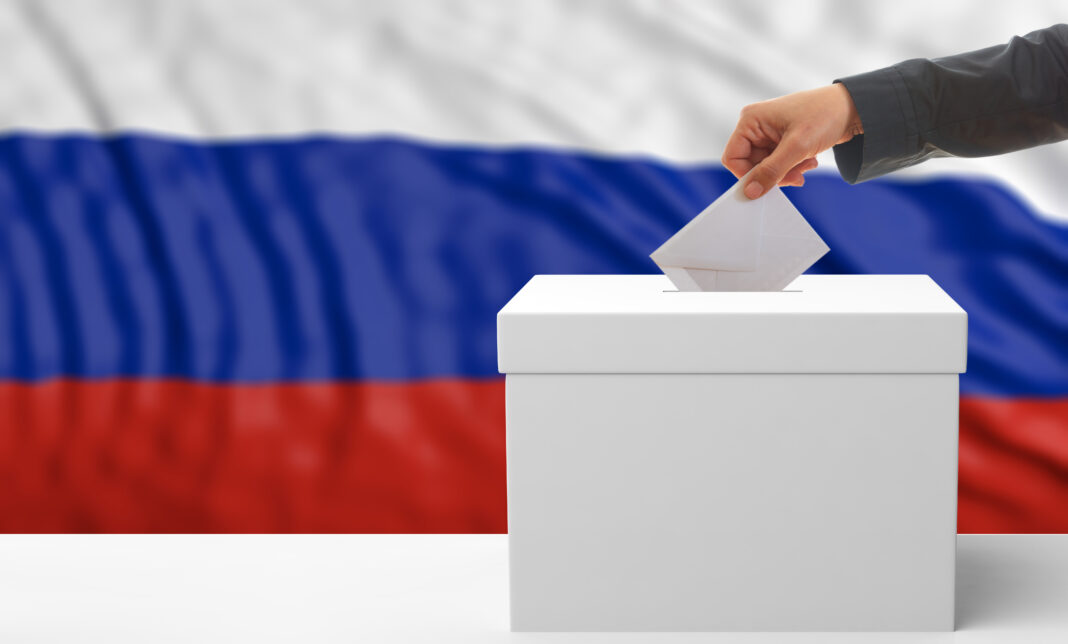by Kateryna Mishchenko
The Russian Central Election Commission (CEC) reported that it had processed 100% of all voting protocols in the presidential elections. According to the voting results, Vladimir Putin received 87.28% of the votes. Other candidates received less than 5% of the votes: Nikolai Kharitonov (4.31%), Vladislav Davankov (3.85%) and Leonid Slutsky (3.20%).
The Russian CEC reported a record turnout in the elections – 87 million voters – 77.44% of the total number of citizens eligible to vote in Russia. It was also announced that they recorded the highest number of votes in history cast for a presidential candidate. “More than 76 million voters cast their votes for the incumbent head of state. This is also a record number. In 2018, Vladimir Putin received 56,426,399 votes,” the commission’s telegram page said.
Independent observers and experts assess the elections as involuntary and non-competitive. Vladimir Putin, who has been ruling Russia since 2000, ran for a fifth term. The Central Election Commission refused registration to all candidates from non-parliamentary parties and self-nominated candidates who collected signatures. At the same time, independent journalists note that the turnout was “fabricated” in at least several dozen regions – voting stations had identical figures. This was documented in Dagestan, Kemerovo, Belgorod and Ivanovo regions.
The election rights protection movement Golos wrote about numerous violations during voting and vote counting: ballot stuffing, carousel voting, centralized voting of budget workers, and so on. The Golos called the presidential campaign “the most meaningless” in the history of modern Russia, when candidates did not even try to simulate real willingness to participate in the elections and compete for voters’ votes.
Voting in the presidential elections also took place in the territories occupied by Moscow in Ukraine. The EU declared non-recognition of the electoral procedure organized by Russia in the occupied Ukrainian territories. The EU statement condemns “the conduct of the so-called elections” in Crimea, as well as in Donetsk, Luhansk, Zaporizhzhia and Kherson regions. The conduct of elections in these territories was called “a clear violation of international law” by the EU.
In several cities of the Russian Federation, ballot boxes were set on fire, filled with ink, iodine and brilliant green. According to the Russian CEC, 214 ballots were spoiled. The Russian Ministry of Internal Affairs issued 155 protocols for administrative violations and initiated 61 criminal cases, 23 of which were due to knowingly false reports of terrorist acts.
According to OVD-Info, at the end of the elections, 86 people were detained in 21 cities across Russia. A couple was detained at a polling station in Moscow for wearing a scarf with a George Orwell quote, while in the Saratov region, an observer from the Communist Party of the Russian Federation (KPRF) was detained for saying, “Putin throws people under tanks for 250 thousand a month.”
On the final day of the presidential elections in Russia, thousands of people also participated in a protest action against Putin. During the protest, called ‘Noon Against Putin,’ people were lining up at polling stations in Russia and abroad to voice their opposition to Putin’s regime. As reported by Meduza, on the day of the protest, voters also visited Alexei Navalny’s grave at the Borisov Cemetery. They brought and left several ballots with the politician’s name handwritten on them.
Charles Michel, head of the European Council, congratulated Russian president Vladimir Putin on his “victory” on March 15, the first day of polling, via social media. British Foreign Secretary David Cameron criticized the elections, stating they lacked freedom and fairness, a sentiment echoed by the United States and Germany. Ukrainian President Zelensky slammed the Russian presidential elections as another attempt by Putin to cling to power indefinitely. The Polish Foreign Ministry Radosław Sikorski also questioned the fairness of the elections.
Meanwhile, the North Korean leader Kim Jong Un and Indian Prime Minister Narendra Modi congratulated Putin on his reelection, expressing hopes for future cooperation. Syrian President Bashar al-Assad and Pakistani Prime Minister Shahbaz Sharif also extended congratulations, anticipating collaboration with Russia. Emir of Qatar Tamim bin Hamad Al Thani expressed optimism for enhanced bilateral relations post-reelection. Turkish President Recep Tayyip Erdogan also conveyed congratulations to Putin, as reported by the Kremlin via the Russian news agency TASS.
On December 31, 1999, President Boris Yeltsin resigned from his position. Vladimir Putin became the Acting President of the Russian Federation, and on March 26, 2000, he was officially elected to this position. Thus, Putin has been in power for 24 years. Although for one term – from 2008 to 2012 – he headed the government under the third president, Dmitry Medvedev. And in the next elections, Putin became president again. The longest-serving dictator was Joseph Stalin – 29 years – from 1924 to 1953. Leonid Brezhnev ruled for 18 years.
On the cover 3d illustration, voter on an waiving Russia flag background ©rawf8/Shutterstock.com
























